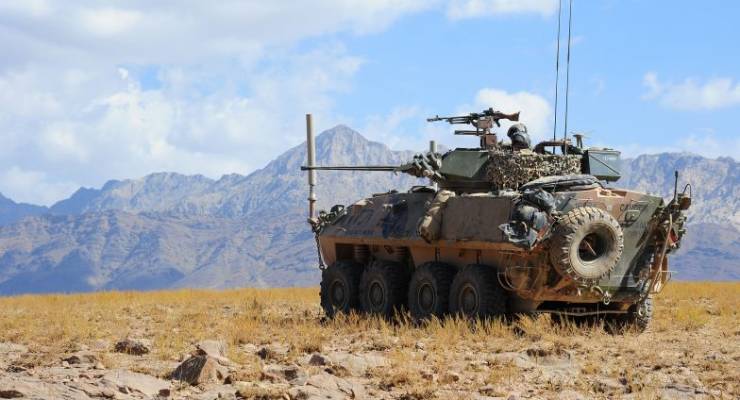
The explosive allegations — swirling since late last year — that special forces soldiers allegedly committed war crimes in Afghanistan is unprecedented in Australian military history. While much of the attention, understandably, has fallen on the seriousness of the allegations, less has been dedicated to the actual process that will be followed.
Just who regulates the punishment of war crimes, and how much will we know about the process?
Which justice system prosecutes war crimes?
Associate Professor Rain Liivoja at the University of Queensland told Crikey there were two ways someone could be charged with war crimes.
“One is through the civilian court system — war crimes are offences under the Commonwealth Criminal Code that applies to all Australians, ” he said. “Or it can be through the military justice system, which would mean a trial by a court martial.”
Liivoja points to the example of the 2013 Skype scandal, which was handled by ACT police and courts, rather than the military justice system.
“So it really depends. The Australian Defence Force may decide there is evidence that, for security reasons, can be more easily managed within the military justice system, or that a court martial panel would better understand the operational context than a civilian jury. Alternatively, they may feel it’s important that the process is as transparent as possible, in which case they may hand the matter over to the civilian authorities.”
What is the role international humanitarian law in all this?
International humanitarian law informs the definition of these offences in Australia’s Commonwealth Criminal Code, so any prosecution for war crimes in Australia would most likely rely on the legal principles of international war crimes tribunals.
Earlier in the week, ADF inspector-general James Gaynor wrote to the International Criminal Court’s independent prosecutor Fatou Bensouda about the inquiry into possible atrocities committed by the Special Operations Task Group in Afghanistan. Liivoja said that it’s unlikely the Hague would get involved any further.
“The ICC will only prosecute war crimes if they are committed as part of a plan or policy, or on a large scale. Moreover, the ICC will only become involved if the government is unwilling or unable to carry out a investigation or prosecution of their own — and there’s no indication of that in this case.”
What kind of transparency will the process have?
While the allegations have circled for a while, we only know for sure the investigation is happening because a top secret report was leaked. Just what will the public know about what the prosecution and it’s outcomes?
Liivoja pointed out that a court martial is as public as civilian court — ultimately what information to withhold from the public scrutiny is at the discretion of the judge; although a military judge may have more sympathy for the argument that certain information needed be held back for reasons of national security.
What’s next?
“I think it’s worth noting that it’s exceedingly rare that a government charges its own soldiers with war crimes — that’s something usually reserved for the other, the opponent,” Liivoja said. “Soldiers regularly get charged with disciplinary offences, or ordinary criminal offences.”
Liivoja also said that while the penalties for the civilian offense of murder might well be identical to those imposed for committing a war crime, the optics of labeling Australian soldiers war criminals was far more serious.
“If I were a betting man, I would expect that they would end up being charged with offences under the Defence Force Discipline Act, which incorporates ACT criminal law, rather than with war crimes”.








I could be wrong but last time I read the DFDA, I was under the impression that charges for serious crimes, like drug smuggling etc, under the Act may be and should be intervened and negated by other relevant courts. But that was 25 years ago. However, the moral of this story is,
1. Don’t lower your standards of entry into elite forces like the SAS.
2. Support your soldiers at all times and maintain the highest standards at all times –
(quickly getting rid of bad apples that may poison the barrel).
“The explosive allegations — swirling since late last year — that special forces soldiers allegedly committed war crimes in Afghanistan……” Why leave it at that. Surely you could have added an “alleged” before “war crimes”?
I’ve been hoping for comments from Senator DimJim Molan & Tastie Hastie MP about what fine, stalwart chappies are these thugs whom they’ve previously extolled for protecting the Nation under shell & fire.
They clearly showed malice aforethought in having acquired the Hakenkreuz flag prior to leaving the bosom of the Motherland they are so selflessly defending and remembering to pack it up in their ole kitbags before setting off.
I guess that’s what training does.
I quite like the appropriateness of the US approach to justice at the Nuremberg trials – the decision-makers who started the war are necessarily implicated in any war crimes committed during the war, since there would have been no war crimes if there’d been no war. This fine principle would have Howard and Downer in the dock, along with any foot-soldiers charged with anything.
“The explosive allegations — swirling since late last year — that special forces soldiers allegedly committed war crimes in Afghanistan is unprecedented in Australian military history.”
Sloppy, just in the first sentence.
There are allegations that war crimes were allegedly committed? One too many allergies!
Unprecedented? Breaker Morant over a century ago? Many since. Vietnam, etc.